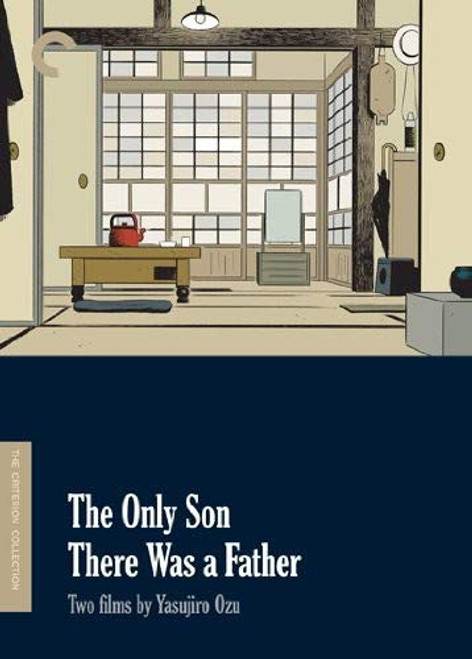Product Description
These rare early films from Yasujiro Ozu (Tokyo Story, An Autumn Afternoon) are considered by many to be two of the Japanese directors finest works, paving the way for a career among the most sensitive and significant in film history. The Only Son and There Was a Father make a graceful pair, bookending a crucial period in Japanese history. In the former, Ozus first sound film, made during a time of intense economic crisis, a mother sacrifices her own happiness for her sons education; the latter, released in the midst of World War II, stars Ozu stalwart Chishu Ryu (Late Spring, Tokyo Story) as a widowed schoolteacher trying to raise a son despite financial hardship. Criterion proudly presents these nearly lost treasures for the first time on home video.
Amazon.com
Master of the domestic drama, Yasujirô Ozu honors selfless parents in this harmonious pair (both even feature similar shots of women with bundles on their backs). In 1936's
The Only Son, his first sound feature, Tsune (Chôko Iida, very affecting) scrimps and saves to provide 15-year-old Ryosuke with a proper education. Twelve years later, the widow visits him in Tokyo, the same path his instructor, Mr. Okubo (Ozu favorite Chishû Ryû), once traveled, but Ryosuke (Shinichi Himori) neglected to tell her about his wife, child, and low-paying night-school job. Her disappointment melts as he proves his mettle during a family crisis. As film scholar David Bordwell notes, it's "a somber story" compared to Ozu's silent comedies.
In 1942's semi-autobiographical There Was a Father, Ryû returns as a widower with a 12-year-old son. (While the father in The Only Son barely rates a mention, Shuhei speaks about his late wife as if she were still alive.) After a class trip goes awry, he trades teaching for factory work and sends Ryohei off to boarding school. Thirteen years later, the father has advanced to an office job and the son has become a teacher, but Ryohei (Shûji Sano) regrets the time they lost even as he respects Shuhei's choices. While this World War II-era film works best on a personal level, the father's sacrifice also reflects a citizen's duty to his country.
If the quality of these prints isn't ideal, the imperfections fail to detract from the timelessness of the stories. The set comes complete with notes from Tony Rayns and Donald Richie, and interviews with Kristin Th
Two Films by Yasujiro Ozu -The Only Son - There Was a Father- -The Criterion Collection-
Was:
$189.88
Now:
$94.94
- SKU:
- TE406126
- UPC:
- 715515060813
- Condition:
- New
- Availability:
- Free Shipping from the USA. Estimated 2-4 days delivery.







![Eclipse Series 10: Silent Ozu - Three Family Comedies (Tokyo Chorus / I Was Born But... / Passing Fancy) (The Criterion Collection) [DVD] Eclipse Series 10: Silent Ozu - Three Family Comedies (Tokyo Chorus / I Was Born But... / Passing Fancy) (The Criterion Collection) [DVD]](https://cdn11.bigcommerce.com/s-t8bvbs505h/images/stencil/500x659/products/25425942/26950553/91Q1SFR6moL__89695.1698534672.jpg?c=2)
![Eclipse Series 3: Late Ozu (Early Spring / Tokyo Twilight / Equinox Flower / Late Autumn / The End of Summer) (The Criterion Collection) [DVD] Eclipse Series 3: Late Ozu (Early Spring / Tokyo Twilight / Equinox Flower / Late Autumn / The End of Summer) (The Criterion Collection) [DVD]](https://cdn11.bigcommerce.com/s-t8bvbs505h/images/stencil/500x659/products/25558629/27085909/418wxyv2WsL__19738.1698619404.jpg?c=2)